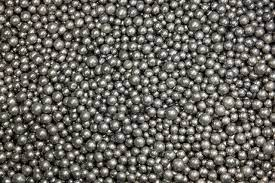
Nickel is a chemical element belonging to the transition metals group in the periodic table and it has a silver-white appearance. With the atomic number 28 and symbol Ni, nickel is a relatively abundant element, and its applications and properties make it a valuable resource in various industries.

Properties of nickel
First discovered in 1751 by Swedish chemist Axel Fredrik Cronstedt, nickel exhibits good conductivity of heat and electricity and slowly dissolves in dilute acids. Its melting point is 1453 °C and its boiling point is 2913 °C.
One of the key properties of nickel is its ability to resist high temperatures and chemical corrosion, making it an ideal element for use in superalloys. These high-performance alloys are commonly found in aerospace and gas turbine industries, where they are used to manufacture jet engines, power generation turbines and other critical components. For nickel composites coatings, visit a specialist such as poeton.co.uk/advanced-treatments/apticote-460-nickel-composites for help and advice.
Uses of nickel
Nickel is an essential component in the production of stainless steel, a widely used material known for its outstanding resistance to corrosion and oxidation. Stainless steel’s durability has made it an indispensable choice for kitchen utensils and medical instruments.
Nickel’s magnetic properties have also contributed to its applications in various industries. Nickel-metal hydride (NiMH) batteries, which use nickel alloys, are widely used in portable electronic devices, hybrid vehicles and other applications requiring rechargeable power sources. Nickel also plays a role in currency production as many countries utilise nickel alloys in the minting of coins due to their durability and resistance to wear.

Issues with nickel
Despite its numerous applications and benefits, there are potential health concerns associated with nickel exposure. Some individuals may develop nickel allergies, leading to skin irritation and other adverse reactions. Nickel is also radioactive so it is toxic to humans and can cause certain cancers.
In conclusion, nickel is a highly versatile and valuable element with diverse applications across various industries. From stainless steel and superalloys to batteries, electroplating and coin production, its unique properties have made it an indispensable element in modern society.
